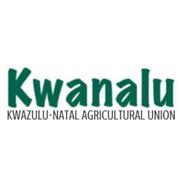
Expropriation Bill, 2020
The Minister of Agriculture, Land Reform and Rural Development together with the Minister of Public Works released the latest version of the Expropriation Bill, which has been approved by Cabinet and certified by the state law advisors and will now be tabled in Parliament. This will be the fourth attempt to introduce a new Expropriation Bill in Parliament since 2008. The latest version of the Bill, is essentially the same as the version that was before Parliament in 2013, save for clauses 12 (3) and 12 (4), which provide for the possibility of nil Rand compensation to be paid, in certain cases where it is regarded to be just and equitable to do so. This will, however, be subject to the right to have recourse to the courts and subject to the requirements of just administrative action.
The particular clause dealing with the possibility of nil Rand compensation, reads as follows:
“(3) It may be just and equitable for nil compensation to be paid, where land is expropriated in the public interest, having regard to all relevant circumstances, including but not limited to –
(a) where the land is not being used and the owner’s main purpose is not to develop the land or use it to generate income, but to benefit from appreciation of its market value;
(b) where an organ of state holds land that it is not used for its core functions and is not reasonably likely to require the land for its future activities in that regard, and the organ of state acquired the land for no consideration;
(c) notwithstanding registration of ownership in terms of the Deeds Registries Act, (47 of 1937), where an owner has abandoned the land by failing to exercise control over it;
(d) where the market value of the land is equivalent to, or less than, the present value of direct state investment or subsidy in the acquisition and beneficial capital improvement of the land; and
(e) when the nature or condition of the property poses a health, safety, or physical risk to persons or other property.
(4) When a court or arbitrator determines the amount of compensation in terms of section 23 of the Land Reform (Labour Tenants) Act, (3 of 1996), it may be just and equitable for nil compensation to be paid, having regard to all relevant circumstances risk to persons or other property.”
The following should be noted:
- The Bill states that it may, in certain circumstances, be just and equitable to pay nil rand, not that it will be the case.
- The requirement of ‘just and equitable’ means that the decision to do so, will have to be weighed up in terms of all the rights protected in the Bill of Rights. It cannot be taken lightly and will have to be justified.
- The circumstances in which a nil rand determination can be awarded is not limited to the circumstances listed, but may be applied also in other circumstances that are considered to be just and equitable.
- Subsection 3 (a) requires that nil compensation may be a possibility where land is not being used and the owner does not intend to develop it or to use it to generate income. Both requirements must be satisfied.
- Regarding sub clause (c), there is a concern over when an owner will be considered to have abandoned and who will determine that. It will probably require evidence that the landowner intended to abandon the land. There is also a concern that cases may arise where landowners abandon land, not because they choose to, but because they are forced to by crime or land invasion.
- Sub clause (d) is in line with the current formulation of section 25 of the Constitution, but there is a longstanding concern over what kind of subsidies and state assistance will be taken into account. Many past subsidies had nothing to do with racially discriminatory purposes.
- Sub clause (e) confuses a potential reason for expropriation with the compensation issue and is also quite vague and a cause for concern.
- Clause (4) is an improvement on the previous (2019) formulation that read as follows: “where land is occupied or used by a labour tenant”. This has now been deleted. Nil compensation will only be considered once a labour tenant claim has been determined by a court or arbitrator. Nevertheless, the principle of nil compensation in labour tenant claims is still problematic and questionable.
The definition of expropriation that was inserted in the previous parliamentary process, is still a serious cause for concern, as it opens up the possibility of state interference with property rights or acquisition on behalf of third parties that will not attract compensation. Business Unity South Africa (BUSA) strongly opposed this in the NEDLAC process. Agri SA and Kwanalu will keep on raising this point.
It needs to be noted, on a positive note that the Bill provides for full access to the courts to determine any disputes, whether they relate to the purpose of expropriation or the amount of compensation. Expropriation is also a measure of last resort and the state must first attempt to reach an agreement with the landowner. Section 2 (3) requires that “a power to expropriate property may not be exercised unless the expropriating authority has without success attempted to reach an agreement with the owner or holder of a right in property for the acquisition thereof on reasonable terms.”
Agri SA and Kwanalu will fully participate in all further consultation processes and keep its legal options open. The Bill will now be tabled in Parliament where it will first be dealt with by the Portfolio Committee on Public Works, which is likely to call for public hearings. Thereafter, it will be referred to the National House of Provinces and provinces will need to obtain mandates on the Bill. Both Houses will have to vote on the Bill. Agri SA and Kwanalu will participate in the process every step of the way.
Please click here for the Bill: https://www.kwanalu.co.za/expropriation-bill-2020/
Please be aware a great deal of incorrect information is being circulated this includes old incorrect messages, which are being forwarded on various groups. Kwanalu will inform members on any further developments.
Kind regards,
Sandy
This email has been sent to:
1. The Kwanalu Board and Advisory Council
- Chairpersons/Secretaries of Associations
3. Members of Kwanalu, whose email addresses appear on our database
4. Commodity and all affiliates
Kwanalu
CEO
Mrs S La Marque
KwaZulu Natal Agricultural Union
87 Alan Paton Avenue, Scottsville
Po Box 100123, Scottsville, 3209
Tel. 033-3429393
Kwanalu Whatsapp: 0813283877
Kwanalu Email: info@kwanalu.co.za
Kwanalu Website: www.kwanalu.co.za
Kwanalu Facebook: https://www.facebook.com/kwanalu
Kwanalu Twitter: https://twitter.com/Kwanalu1
Kwanalu Instagram: www.instagram.com/kwanalu_kzn
Kwanalu is on Telegram & Whatsapp
Fax. 086 435 2237
Published on Thursday, 22nd October 2020 - 11:21
Recent Posts
disclaimer









